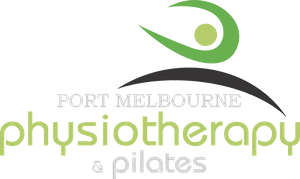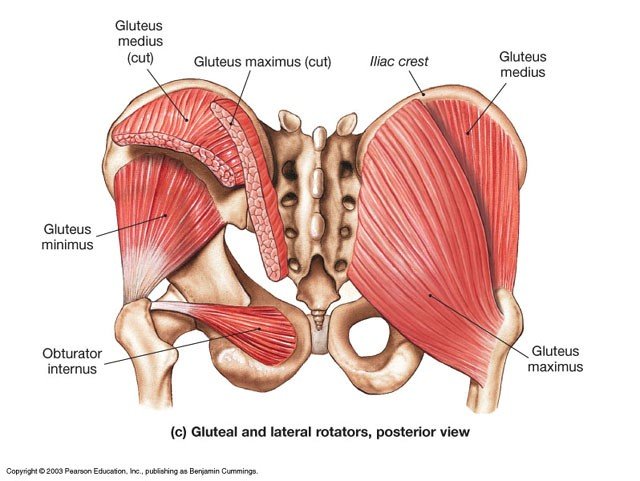Your gluteals…what are they?! They are your buttock muscles….you may know this much, but did you know that they are a group of muscles that each have a different role? Or did you know how important they are in providing support to the lower back and pelvis? And, that they are important for movement and stability at the hip joint?
For a lot of us, our gluteals just provide cushioning for sitting at our desks! They are those muscles that we would like to have looking good…but most people aren’t aware of how important they actually are for us!
Do you experience any problems at your back, pelvis or hips? Have you suffered from recurrent hamstring issues? Take a moment to consider your gluteal muscles…
The muscles around the hips and pelvis have to work closely as a team to provide normal and efficient movement patterns, and prevent the occurrence of injury. It is an intricate network of muscles, each with a specific role. There are small, deep muscles called the deep hip rotators(such as the obturator internus + externus, Quadratus femoris, superior+inferior gemelli, piriformis..). They provide stability to the ball and socket joint of the hip.
Then, originating from the pelvis and inserting into the femur, are the deeper gluteus medius and minimus muscles. Gluteus medius and minimis produce the same actions. They play a significant role in injury prevention because they are the primary stabilizers of the pelvis that help keep the pelvis level, for example when you stand on one leg. They are also the strongest abductors and internal rotators of the femur. Finally there is the main bulk of your buttocks, the most superficial layer, the gluteus maximus; a large powerful muscle that externally rotates and extends the hip.
Injury and poor sporting performance are seen when there are deficits or dysfunctions in one or more of these muscles. If the muscles are too long or too short, they cannot contract efficiently. The gluteals should be the primary muscles that drive lower body movement. If they are inhibited or weak, then other muscles such as the hamstrings, quadriceps or lower back muscles kick in to compensate, which can often result in muscle imbalances and injury. Likewise the specific moment in time in which these muscles activate or engage is vital to prevent overload of the low back and hamstring muscles, thus preventing injury to these areas. Building up strength in the lower limb muscles, without the glutes, makes for an injured or average athlete. The glutes should be the dominant force….they need to strong for safe, efficient lower limb patterns to occur.
There are some small and simple tests to see if your gluteal muscles are in fact missing in action!
Take a moment to try these tests…
- Place your hands on your buttocks and contract your muscles by squeezing your gluteals. Squeeze and relax a few times. Can you feel the muscles tighten and relax? Is it easy to do? Now try the right side only. Then the left side only. Are you able to squeeze and relax one side at a time? Can you keep alternating one side at a time? Is it easy to do… without the other side joining in?
- Lie face down on your stomach with your legs straight. Have someone either observe or actually place one hand on your hamstring and the other hand on your glute. Lift your leg up and see which muscle tenses up first. If your hamstrings fire first you might have problems. You need to re-teach the body how to fire the glutes. A simple way to do that is to actively squeeze your abs as you extend your hip.
- Next, ask yourself where you get sore when you do squats? If it’s primarily the glutes you’re on track. If it’s ONLY the quads you may have a problem…
The team at PMPP are experienced in the treatment of injuries involving poor gluteal function, as well as offering both manual therapy and massage to assist in soft tissue release work to facilitate better glute use!
So if you do suffer from back, pelvis, hip or hamstring problems, perhaps your gluteals need to be assessed, and a plan or program created to help retrain, strengthen and stretch these very important muscles!!
- Meadhbh

